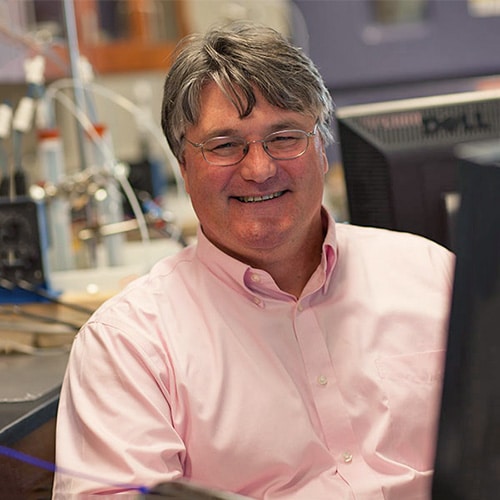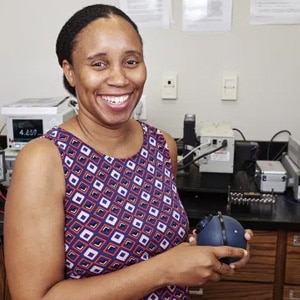
In pre-pandemic days, the Office of Research and Engagement launched Coffee and Convergence, a series of casual gatherings focused on the University of Tennessee’s strategic areas of emphasis. Tom Zawodzinski, the UT-ORNL Governor’s Chair Professor for Electrical Energy Conversion and Storage, was among the first to participate, and he said the event helped him build new collaborations.

“This Coffee and Convergence idea intrigued me,” said Zawodzinski, who serves in the Department of Chemical and Biomolecular Engineering at UT and in the Division of Materials Science and Technology at Oak Ridge National Laboratory.
“I already knew about the value-added benefits of research development, having worked with Kimberly Eck and Sharon Pound on several proposals. Also, as a Governor’s Chair, I feel I have a responsibility to participate, which is easy because I’m a collaborative animal,” he said.
Kiley Compton, research development manager, worked with Eck, ORE’s former associate vice chancellor of research development, to foster convergent conversations at the meeting focused on energy science and technology, attended by 12 UT faculty members. Facilitated questions about research interests and multidisciplinary research experience allowed everyone around the table to participate, with flexibility to engage further on common areas of interest.
“I was impressed by the spectrum of skills around the table,” Zawodzinski said. “It gave me a chance to learn about other corners of the university. When you work on convergent, transdisciplinary, collaborative research projects, you often need people with these skills.”

Zawodzinski invited three of his new acquaintances to join a team compiling an Engineering Research Center (ERC) pre-proposal submitted to the National Science Foundation in October 2020. These included Nicole McFarlane, ADVANCE associate professor in the Min H. Kao Department of Electrical Engineering and Computer Science (EECS). With a background in circuit design, she works on sensors for many applications, including sensors with glucose-based and carbon nanofiber front-ends. She said she looks forward to working with Zawodzinski’s electrochemical front-end structures.
“When I first signed up for Coffee and Convergence, I didn’t know what to expect,” McFarlane said. “Sometimes, working within my department limits the kinds of research I can do. With this event, I saw others’ perspectives and realized that we could work together to make something differently from what either of would normally do. Plus, I thoroughly enjoyed the social aspect of the meeting.”
The two other new collaborators were Tom Berg, assistant professor in UT’s College of Nursing, and Dan Costinett, associate professor in EECS. “Dan, for example brought complementary skills to the team in power electronics, energy conversion systems, and chemical conversions.”
Zawodzinski called Berg, who also serves as adjunct associate professor in the Industrial and Systems Engineering Department, “an interesting person in an unexpected place,” and asked him to join the ERC team because of his deep knowledge of systems engineering. “This ERC envisions systems that need parts beyond chemical cells, just like internal combustion in cars needs radiators, sensors, fuel injectors, and pumps. Tom can help us with that,” he said.
While he continues to explore collaborations with other faculty he met that day, Zawodzinski said the pandemic has slowed those efforts down. He said it’s been hard to get the simplest tasks accomplished in the laboratory, but he’s looking forward to ramping back up in 2021.
As for Coffee and Convergence, Compton said she also envisions ramping back up in 2021 with a virtual platform for the short term.
For more information on Coffee and Convergence or any of the other research development programs and resources available to faculty at UT Knoxville, the UT Institute of Agriculture, and UT Space Institute, please visit the Research Development webpage.